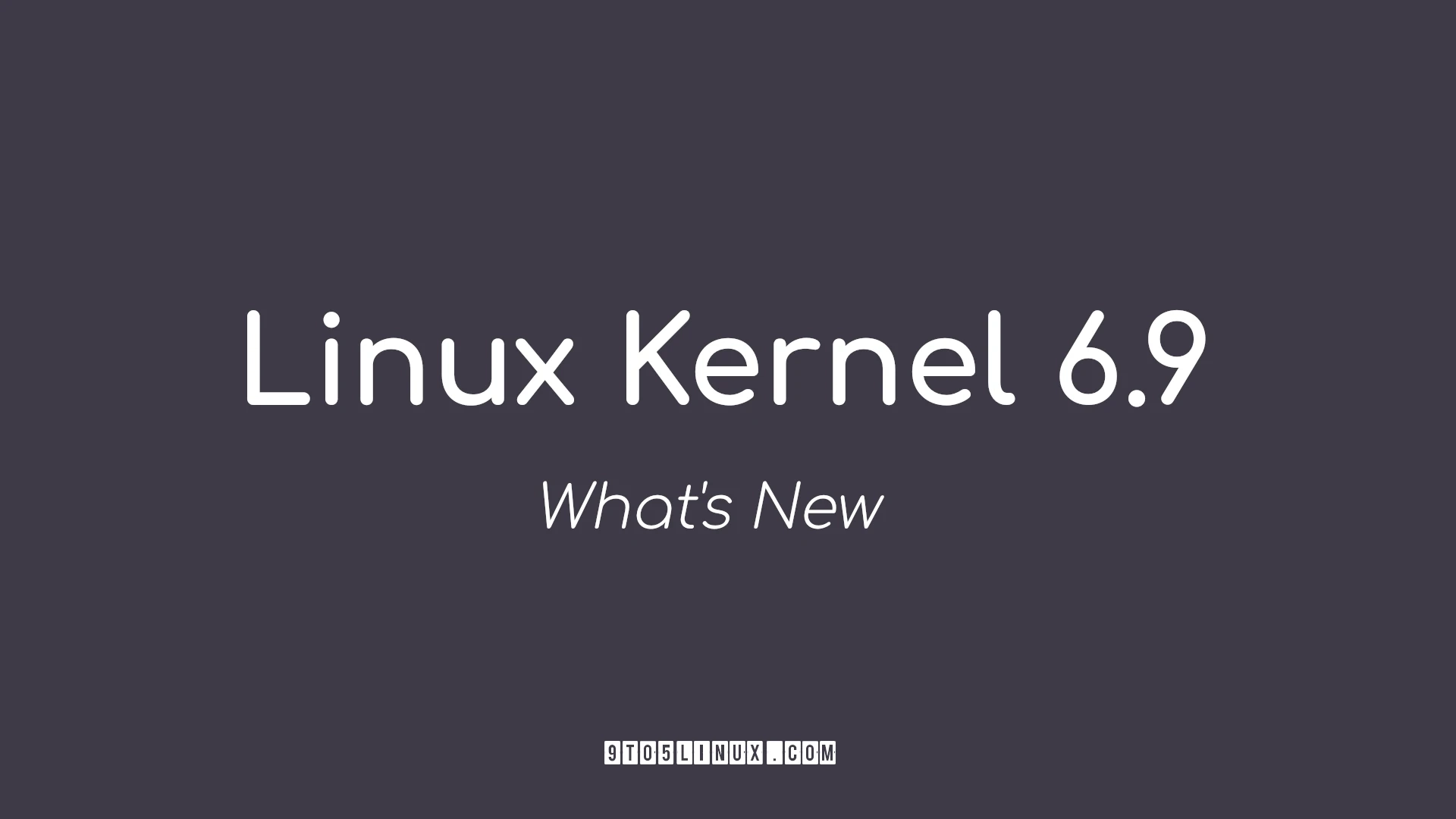If you experience any difficulty in accessing content on our website, please contact us at 1-866-333-8917 or email us at support@chicagovps.net and we will make every effort to assist you.

Linus Torvalds announced today the release and general availability of Linux kernel 6.9, the latest stable version of the Linux kernel that introduces several new features and improved hardware support.
Highlights of Linux kernel 6.9 include Rust support on AArch64 (ARM64) architectures, support for the Intel FRED (Flexible Return and Event Delivery) mechanism for improved low-level event delivery, support for AMD SNP (Secure Nested Paging) guests, and a new dm-vdo (virtual data optimizer) target in device mapper for inline deduplication, compression, zero-block elimination, and thin provisioning.
Linux kernel 6.9 also supports the Named Address Spaces feature in GCC (GNU Compiler Collection) that allows the compiler to better optimize per-CPU data access, adds initial support for FUSE passthrough to allow the kernel to serve files from a user-space FUSE server directly, adds support for the Energy Model to be updated dynamically at run time, and introduces a new LPA2 mode for ARM 64-bit processors.
Rust language has been updated to version 1.76.0 in Linux 6.9, which also reworks the locking mechanism in the GPIO subsystem, adds support for the ORC stack unwinder and kernel live patching for the LoongArch architecture, mitigates the RFDS (Register File Data Sampling) vulnerability affecting Intel Atom processors, and adds support for the membarrier() system call for the RISC-V architecture.
Other noteworthy changes in Linux kernel 6.9 include LZ4 compression support for the hibernation image creation and loading code, support for NFSD administrators to revoke NFSv4’s open and lock state, subvolume children btree support, improved journal pipelining, discard path improvements, improved directory structure checking, and new mm helper in the bcachefs file system introduced in Linux kernel 6.8.
The F2FS (Flash-Friendly File System) flash file system received zoned block device support, per-file compression, and enhanced data recovery after a sudden power cut on a zoned block device, the exFAT file system received improvements to directory synchronization performance, the EXT4 file system received an inode flag for atomic writes and online resize improvements, and the Btrfs file system received more zoned mode fixes and minor performance optimizations.
On top of that, the memory-management performance has been improved, the perf tool received several new features, BPF token support was added for delegating a subset of BPF subsystem functionality from privileged system-wide daemons like systemd, and ARM 64-bit processors received initial support for the contiguous PTE bit to allow the TLBs to map a range larger than a single PTE if the range is physically contiguous.
Linux 6.9 brings improved networking capabilities, featuring TCP_NOTSENT_LOWAT support in MPTCP, capability to forward ICMP Error messages in IPSec, standalone control state machine for bonding according to IEEE 802.1AX-2008 5.4.15, aid for hosts running on multiple separate MCTP networks, support for new 2.5GE and 5GE Energy Efficient Ethernet (EEE) link modes, SPP (signaling and payload protected) AMSDU support, and expanded-bandwidth OFDMA assistance.
New drivers have also been integrated in Linux 6.9, these include drivers for ChromeOS’s Embedded Controller, Marvell’s Octeon PCI Endpoint NIC VF, RENESAS’s FemtoClock3 Wireless clock generator, Qualcomm’s Snapdragon X Elite (X1E80100) processor, Samsung’s Wireless Action Mouse, Keyboard, GamePad, Book Cover, Universal Keyboard, and HOGP Keyboard Bluetooth devices, Snakebyte’s gamepads, and Goodix Berlin’s I2C and SPI touch controllers.
Apart from these, it also includes additional AMD IP blocks for catering to future AMD hardware, Intel Xe graphic driver updates, Displayport tunneling support for Intel i915 graphics driver, HDMI compatibility for the Rockchip RK3128 processor, SoundWire assistance for AMD ACP 6.3 configurations and DSPless mode support for Intel Soundwire systems, battery charge management support for Fujitsu laptops, and refresh rate key support for Lenovo IdeaPad laptops.
Finally, the Linux kernel 6.9 labels the EXT2 file system as deprecated due to its lack of protection against the Year 2038 problem. Although EXT2 is still functional in the Linux kernel 6.9, developers recommend avoiding this feature. Similarly, Linux 6.9 has eliminated the older NTFS filesystem implementation, choosing NTFS3 as the default for NTFS filesystem support.
The Linux kernel 6.9 will be a transient branch with support for just a few months. It will pave the way for the Linux kernel 6.10, which has officially entered its merge window, as announced by Linus Torvalds. The release of Linux kernel 6.10 is anticipated around mid or late September 2024. In the meantime, you can download the current Linux kernel 6.9 through Linus Torvalds’ git tree or the kernel.org webpage.
Last updated 2 hours ago
ChicagoVPS is your gateway to unparalleled hosting solutions. Our state-of-the-art datacenters and powerful network ensures lightning-fast speeds and uninterrupted connectivity for your websites and applications. Whether you’re a startup looking for scalable resources or an enterprise in need of enterprise-grade hosting, our range of plans and customizable solutions guarantee a perfect fit. Trust in ChicagoVPS to deliver excellence, combining unmatched reliability and top-tier support.
For Inquiries or to receive a personalized quote, please reach out to us through our contact form here or email us at sales@chicagovps.net.
